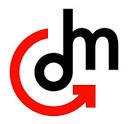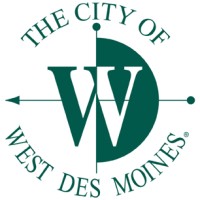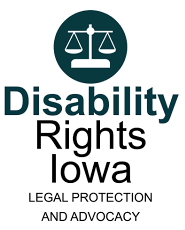Lift Survey 2018
Awareness and understanding of women’s issues are a start, but true change requires more

Momentum is building. Do you feel it?
At a national level, the past year arguably felt like a turning point for women’s issues. In January 2017, more than 4 million people turned out for what could be the largest single-day demonstration in American history — the Women’s March. The march set the tone for the year to come. It was followed by numerous allegations of sexual misconduct in the workplace, a growing #MeToo movement where women felt empowered to speak up and be heard, and highly publicized examples of the gender pay gap. A record number of women also are throwing their hats in the political ring this year and running for office.
The headlines are visible and numerous, but what does it mean to Iowans? Does it feel like momentum? And does it feel like we’re headed in the right direction?
It does, and a majority of people who took our annual Lift IOWA survey believe we are witnessing a turning point.
“Women are starting to stand up for themselves, and are especially standing up for those who are not yet strong enough or are completely unable to stand up for themselves,” said Emily Bettridge, content strategist at Plaid Swan Inc. “We’re uniting under the sisterhood of simply being women caught at a point in history where we have decided to make a change for the better.”
This was one of the conclusions suggested by the results of our third annual survey on gender, leadership and equality, according to the unscientific online questionnaire answered by 218 people, 7 percent of them men. Nearly three-quarters of the people who took the survey — 73 percent, specifically — believe the past year was a turning point for women’s issues.
But will the events of the past year translate to positive change? Many who responded are hopeful yet hesitant, noting true change requires more than public consciousness and understanding.
“This recognition of the need for change must still turn into action in order to shift the dynamic,” said Erin Davison-Rippey, director of public affairs for Planned Parenthood of the Heartland. “There are still too many examples, both behind closed doors and in public policy, where women’s rights have been limited and even rolled back.”
Other conclusions include:
- In 2017, the social media hashtag #MeToo became a vehicle for women and men alike to share their stories about sexual harassment and misconduct they experienced in and outside the workplace. Nearly 80 percent of respondents felt #MeToo was helpful for women in general; however, only 60 percent felt the movement was helpful for working and professional women. Almost 28 percent said they were undecided on how #MeToo will impact professional women.
- Overall, 60 percent of respondents felt events of the past year will translate to positive change for gender equality.
- A recent report from nonprofit LeanIn.org and SurveyMonkey concluded that since #MeToo, the number of men who felt uncomfortable mentoring women has tripled. This hesitance isn’t reflected in responses of men who took our survey. In fact, 56 percent are just as likely to mentor women today as they were before #MeToo, and nearly a quarter of male respondents said they are more likely to mentor women.
- Despite a record number of American women and Iowa women showing interest in running for political office, two-thirds of those who took our survey said they are no more likely to run for political office than they were a year ago.
218 people — about 7 percent men — took the online survey between Feb. 26 and March 8.
AGE
34%: 18-35 years old
34%: 36-50 years old
27%: 51-65 years old
5%: 65 years or older
OCCUPATION LEVEL
27%: Employee
23%: Manager
29%: Executive level
18%: Owner/President
1%: Retired
1%: Not currently working
1%: Serving in public office
MARITAL STATUS
70%: Married
13%: In a relationship
17%: Single
CHILDREN
42%: Still dependent at home
35%: No children
21%: Adult children
2%: Supporting an adult child
In 2017, the social media hashtag #MeToo exploded and became a vehicle for women and men alike to share their stories about sexual harassment and misconduct they experienced in and outside the workplace. Do you feel the #MeToo movement has helped…
*150 of 218 answered
… professional and working women?
Yes: 60%
No: 13%
Undecided: 27%
YES
“As women feel more comfortable speaking out and sharing their stories, the #MeToo movement has sparked many important conversations. The more we talk about this and how it affects our lives, the less secrecy there is surrounding it and the more likely we will see safer environments for all.”
Kirsten Anderson, advocate
NO
“In the short-term, there has been a breathtaking number of examples of women who are being denied professional opportunities because of a fear someone might unintentionally or accidentally say or do something offensive. The response to the #MeToo movement for too many business people and organizations has been to reduce the number of occasions women are invited to participate in meaningful business meetings, opportunities and events. Until people gain full awareness and skills, the unintended negative consequences of the movement to women are heartbreaking. The long-term effects are yet to be seen. Often short-term negative consequences are a necessary step on the path to long-term positive results. I’m hopeful that’s the case with this important movement.”
Rowena Crosbie, president, Tero International Inc.
UNDECIDED
“I think it’s very good in the sense that women may finally use their voices. Whether or not women feel safe speaking up in their own workplace using their own names remains to be seen. We need some major shifts in the way the country generally in business specifically thinks about sexual harassment and the way the human resource departments operate. I am very cautiously optimistic but teetering on pessimism.”
Nancy Hauserman, professor emeritus, University of Iowa Tippie College of Business
…women in general?
Yes: 79%
No: 9%
Undecided: 12%
YES
“Women need to be more outspoken. We need to stand up for ourselves and create paths for ourselves, but we also need to be heard. This is no easy feat, but this movement is pushing us in the right direction to be able to advocate for ourselves with courage and for others to learn how to listen.”
Shari Saunders, PR assistant account manager,
Strategic America
NO
“I believe it lost its focus and is already being used as a punchline. Unfortunately, there were those who appeared to misuse or at least misunderstand the purpose, and the power was greatly diluted.”
Anonymous female
UNDECIDED
“We are still not really addressing the struggles of women who are the most vulnerable such as women of color, women who are undocumented, and women in poverty.”
Emily Shields, executive director, Iowa Campus Compact
*149 of 218 answered
Yes: 60
No: 13
Undecided: 27
YES
“Women are finding their individual and collective voices. I think that the most important thing for future success is the intersectionality of the movements. It cannot be women of color alone without white women or vice-versa. Women from all backgrounds need to stand up for themselves and for each other. The unity will be the strength of future equality. I still think some of the equity in the workplace — such as closing the pay gap — are a ways off, but I think the more women in leadership positions, the more we will see the world changing towards a more equitable culture in the workplace.”
Stephanie Oppel, associate director, Applied Research and National Programs, Drake University
NO
“History is repeating itself. Check out the 1970s with regards to women’s rights and movement. It’s a wave, with small incremental change. How many victims voted in local, state and national elections?”
Anonymous female
UNDECIDED
“I feel that men are starting to (go) a little on the offense and need to be more included in sharing their own stories. There are male victims as well. This is a human issue — women might be the biggest group of victims, but they aren’t the only ones. That being said, I think it has done a lot to make women feel more empowered to ask for what they feel they deserve which is a step in the right direction.”
Rebecca Hughes, client success manager,
Cornerstone OnDemand
Some called 2017 “a turning point for women’s rights.” Do you feel we are witnessing a turning point?
*150 of 218 answered
Yes: 73
No: 7
Undecided: 20
YES
“The election was a turning point for many. It is no longer enough to just passively protest inequities within our society and put up with ‘the way it has always been done.’ The election showed what happens when we don’t speak up loudly and often. It was enough to push women and those who were frustrated with the status quo out of their comfort zones and into where change happens.”
Aubrey Alvarez, executive director, Eat Greater Des Moines
“I’m hopeful — as a husband and father to a teen daughter getting ready to leave home — in my belief that people, men and women, will intercede when they see injustice. People sometimes need to feel they are a part of the majority to be empowered, and I believe that time is now.”
Eric Wessels, architect, Simonson & Associates Architects
NO
“While highly publicized, I think the unintended consequence will be a reluctance by men to hire or mentor women for fear of interpreted misconduct.”
Anonymous female
UNDECIDED
“I would like to believe we have reached a tipping point; however, when you consider the number of women who participated in the Women’s March in 2017 and contrast it with the number who participated in 2018 … combined with the assault on reproductive freedom, we need to acknowledge that in many cases progress has not been maintained or sustained.”
Melynda DeCarlo, founder, Meyvn Group
“I’ve been around long enough to have witnessed other ‘moments’ that I thought would change the hierarchy though I remain optimistic that this time may be ‘the one.’”
Anonymous female
*147 of 218 answered. The ranking reflects an average based on respondents assigning each entity a value from 1 to 10, with 1 being not supportive and 10 being very supportive.
2018
Women 6.6
Men 5.4
World 4.9
U.S. government 4.3
State of Iowa 5.0
Banks/lenders/investors 5.3
Media 5.8
2017
Women 6.6
Men 5.4
World 4.6
U.S. government 4.4
State of Iowa 4.9
Banks/lenders/investors 5.5
Media 5.8
*144 of 218 answered
Positive: 74
Negative: 8
Undecided: 18
SUMMARY: Nonprofit LeanIn.org recently partnered with SurveyMonkey to understand what men and women were feeling in the wake of widespread media reports of sexual harassment. The findings? Since #MeToo, the number of men who are uncomfortable mentoring women has tripled. With this data in mind, we wanted to discover more about respondents’ access to male mentors as well as their experiences. An overwhelming majority of survey takers said their experiences with male mentors were positive, and men who took the survey said they are just as likely to mentor women today as they were prior to #MeToo.
“Throughout my career, I have been fortunate to work for amazing leaders (mostly men) who always valued my input and contributions, even when I was a young female in mostly male-dominated workplaces. Now that I’m serving in a mentor capacity, I spend time listening to and advising both male and female young professionals in our community.”
Emily Abbas, senior vice president and chief marketing and communications officer, Bankers Trust Co.
“In college, my favorite professor was a male and in many ways a mentor to me. He is an incredible professional who really helped me develop the skills I needed to enter the workplace. Since then, I had all female mentors — not because I sought them out, but because it just happened that way. When I respect someone professionally and look to them for advice, I don’t think about their gender. I see them as a professional who I admire and want to learn from.”
Shari Saunders, PR assistant account manager, Strategic America
“There are more good guys than bad guys. We need to support and cheer on the good guys and call out the bad guys.”
Joey Beech, executive director, Ankeny Economic Development Corp.
NEGATIVE
“No male boss or colleague ever offered to mentor me.”
Claire Celsi, owner, Public Relations Project LLC
“I’ve never preferred a male mentor because I don’t want to rely on a male for strength and professional guidance. While they may have good insight, I prefer being mentored by a woman who broke the glass ceiling and excelled in her field of work because of her determination and ambition.”
Anonymous female
UNDECIDED
“I have worked primarily in women-dominated environments, so my mentors have all been women.”
Erin Davison-Rippey, director of public affairs, Planned Parenthood
of the Heartland
“I’ve had male influencers but not a male mentor. I’m open to the idea of having a male mentor if they can speak to the challenges that I face and/or obstacles that I might need to overcome to grow.”
Anonymous female
Men taking this survey: Would you say you are more or less likely to mentor a woman since #MeToo?
*16 of 218 answered
More Likely: 25%
Less Likely: 19%
About The Same: 56%
MORE LIKELY
“I have heard this survey result and feel that responsible men need to step up. It is not difficult to be non-threatening and nurturing in a work environment (or) any environment. I’m not sure I understand the hesitation.”
Eric Wessels, architect, Simonson & Associates Architects
LESS LIKELY
“Concern about potential false accusations.”
Anonymous male
ABOUT THE SAME
I trust that I will relate respectfully to both women and men. I have no doubts about this based on my experience and feedback.”
Kevin Pokorny, owner, Pokorny Consulting
“People need to be professional, accountable, and realize others are relying upon you to help them out and not take advantage of the situation.”
Daniel Fitzgerald
How much more or less likely are you today than in the past to run for political office or seek a position on a government board or commission?
*150 of 218 answered
More likely: 27
Less likely: 6
About the same: 67
SUMMARY: According to a recent report from NPR, more than twice as many women are running for Congress this year compared with 2016. The report cites this year is on track to break records. Also, in the same span of time, more than 30,000 women nationwide have expressed interest in running for office, according to partisan political action committee Emily’s List. Just recently a new report showed a record number of Iowa women are running for office in 2018.
Only 27 percent of our survey respondents said they are more likely to run for office today than in the past. A slight distaste for the demands of political office may be waning though — only 6 percent said they were less likely to run, compared to 18 percent last year. A majority of those who responded to our survey said they are no more likely to run for political office today than they were a year ago. Reasons why vary — for the most part, these women are not interested; however, many indicate an increased desire to do more in other capacities.
MORE LIKELY
“Women bring a different voice and collaborative approach to any decision-making body. It would be healthier for every level of government to have a better mix of men and women in office.”
Jessica Dunker, president and CEO, Iowa Restaurant Association
“I have always told other women: never say never to running for elected office. If we are quick to discount our own potential for serving in elected office, and other appointed positions, we will never reach a critical mass of representation. And if I’m telling other women that, I can’t authentically discount my own potential to serve in those positions as well.”
Erin Davison-Rippey, director of public affairs, Planned Parenthood of the Heartland
ABOUT THE SAME
“I’ve never had a desire to run for office. However, I have more of a desire to help and advocate for people more than I’ve ever had before.”
Cara Seidl, director of marketing, Davis Brown Law Firm
“Being involved has always been important to me. However, to run for office and claim the motivation was #MeToo or otherwise is not intentionally pure — it is done out of societal anger.”
Anonymous female
When given a choice between two qualified candidates for state or congressional office, one male and one female, would you vote for a woman over a male candidate with your party affiliation?
*145 of 218 answered
Yes: 68%
No: 32%
SUMMARY: In the past year, it’s safe to say Iowan women’s overall interest in running for public office has increased. Ready to Run, a nonpartisan campaign training program organized by Iowa State University’s Carrie Chapman Catt Center for Women and Politics, saw a record number of participants attend its 10th annual workshops in 2017. In January, several Iowa city councils became majority-woman for the first time, according to a Des Moines Register report. Last year, Iowa gained its first female governor when Kim Reynolds was sworn into office.
But there is more work to be done to achieve gender parity. We asked survey takers their thoughts on electing women to political office and whether they would vote for a qualified female over a male if it means getting our state one step closer to gender parity.
YES “Women represent only 12.9 percent of our state House of Representatives and only 16 percent of our state Senate. With such small numbers, our voices aren’t represented in laws restricting our bodies, educating our children and protecting our neighbors.” Judy Downs, executive director of Emerge Iowa and member of the Urbandale School District board of directors
“Everything else being equal, I would give the woman a chance. The research shows that diversity of thought and experience gets better outcomes. I believe adding more women to elected offices will add that much-needed diversity.” Diane Ramsey, co-founder, Iowa Women Lead Change
“The key component of the question is ‘qualified candidates.’ When both are qualified, unless the male is somehow a better candidate than the female, I want to give the woman the benefit of the doubt.” Susan Judkins, client development director, RDG Planning & Design
NO “I make rational decisions. If I feel the male is more qualified or fits my beliefs over the woman, I will vote for him. And vice-versa, I’ll choose the woman if she fits closer to my values and platform. It’s always great to have more women lawmakers, but it really does depend on their stance on issues.” Vanessa, paralegal
“I don’t want women just because they’re women. That’s not equality. I want more women with a variety of viewpoints to run for office. I look forward to the day when choosing between two women from two different parties isn’t an anomaly.” Jessica Dunker, CEO, Iowa Restaurant Association
“Not for that reason alone, she would have to stand out as the more qualified candidate. But all things being equal, yes, I would vote for a woman.” Terry Taylor, agent/owner, Terry Taylor State Farm Agency
*119 of 218 answered
SUMMARY: Last year, survey takers were resoundingly clear in concluding that the biggest obstacles women must overcome to achieve gender equality exist outside the office. Many individuals noted work-life balance and self-confidence were significant barriers standing in the way of women advancing in their careers and attaining leadership positions. Replies this year were similar, and respondents also noted the pay gap, the lack of women in leadership roles, the “good old boys club,” unconscious bias, and other women, among others, as the biggest challenges facing women in business today.
The biggest challenge is …
“Bias and discrimination, as well as women holding themselves back because they have internalized that bias.”
Emily Shields, executive director, Iowa Campus Compact
“Confidence.”
Joey Beech, executive director, Ankeny Economic Development Corp.
“The constant battle between being a mom and a professional. Not many of us can afford to raise our kids without having to work and then we have the guilt of working on top of that.”
Anonymous female
“Managing a career whilst potentially managing a family. Women are still expected to be the primary caretakers, and there’s always someone waiting in the wings, ready to swoop in when a woman chooses her family over her career, or even if she is just perceived as having done so.”
Anonymous female
“Men not giving value to the ideas, skills, etc., of women. There is still unconscious bias that operates and influences men in how they see and work with women.”
Kevin Pokorny, owner, Pokorny Consulting
“Equitable compensation.”
Susan Hatten, Holmes Murphy
“The old boys club. It’s real.”
Rebecca Hughes, client success manager, Cornerstone OnDemand
“Other women. We are so hard on other women and have to change the norms that cause this.”
Terry Hernandez, executive director, Chrysalis Foundation
“Other women who aren’t confident in their own personal and professional worth. Women have been my greatest barriers, not men.”
Anonymous female
Lift IOWA is a free weekly e-newsletter targeted at women in business and seeks to elevate the importance of empowering more women to become involved on boards and in leadership roles in companies and communities throughout Iowa. Learn more and sign up at www.businessrecord.com/liftiowa.








